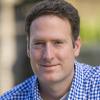You might think with Pope Francis making economic justice a centerpiece of his papacy that U.S. bishops would awaken from their slumber when it comes to addressing extreme income inequality. Not so much. As Catholic bishops gather for a national meeting this week in Baltimore, the old quip from the Yankee great Yogi Berra comes to mind: "It's déjà vu all over again."
The official agenda is focused on religious liberty, same-sex marriage and pro-life concerns. These are all important issues for church leaders, and they have dominated the bishops' engagement in public life for several years. Absent from the docket again is any substantive discussion of poverty, inequality, or workers' rights. Since the Great Recession, bishops have largely failed to speak with a collective voice about the moral dimensions of economic insecurity. The silence is deafening. It's also in stark contrast to bold messages coming from the Vatican.
Pope Benedict XVI warned about the "scandal of glaring inequalities" in a 2009 encyclical. A detailed 2011 analysis from the Vatican was so timely it addressed "the speculative bubble in real estate" and the "tendency to deregulate banking and financial activities" and called for a financial transaction tax that would pay for a "world reserve fund" to support the economies of countries hard hit by the financial crisis. Pope Francis challenges market fundamentalists who hawk "trickle-down" theories as naïve, denounces the "new tyranny" of unfettered capitalism and calls inequality "the root of social evil."
The U.S. Conference of Catholic Bishops seems less inspired. A few months after launching a Fortnight for Freedom campaign with a coordinated national effort to rally Catholics in the pews to fight contraception coverage in the Affordable Care Act, bishops meeting for their 2012 national assembly were sharply divided over a draft economic justice statement. "The Hope of the Gospel in Difficult Times" never saw the light of day.
The unusually testy debate over the document during a public session of the meeting underscored generational and ideological fissures in the hierarchy. More progressive bishops criticized the draft statement for its failure to substantively address the structural causes of poverty or offer a clear response rooted in the church's century of Catholic social teachings.
"Why don't we address the growing gulf between the haves and the have nots?" asked retired Archbishop Joseph Fiorenza, a former conference president.
He noted there was only a single reference to the right of workers to unionize. "It's almost like it was an afterthought," he said. "But when you look at the compendium of the social teachings of the church, there are three long paragraphs on the right to organize, the right to collective bargaining, and the right to strike."
Fiorenza pointed out that there was "not even a footnote" about the bishops' seminal 1986 pastoral letter, "Economic Justice for All," which during the heart of the "Reagan Revolution" challenged market absolutism and anti-government ideology. Other bishops seemed to wonder why there was a need to say anything at all, a view emblematic of a new generation of more conservative church leaders.
There are signs of hope that some important leaders in the hierarchy get it. The pope's new pick to lead the Chicago archdiocese, Bishop Blase Cupich, has called growing inequality "a powder keg that is as dangerous as the environmental crisis the world is facing today."
Bishop Robert McElroy of San Francisco, who holds a doctorate in political science from Stanford University, has made the issue a priority. "Pope Francis' assertion that egregious levels of inequality constitute a profound injustice rather than a necessary part of the natural order is the central friction that underlies the rejection of the pope's message within the United States," he writes in America magazine. "When the richest nation on earth has the highest level of post-tax-and-transfer income inequality among highly developed countries, that is injustice, not the natural order. When the 85 richest individuals in the world have more wealth than the 3.5 billion poorest, that is injustice, not the natural order."
Economic justice and inequality can't be easily dismissed as liberal pet causes. Social conservatives and leaders in the pro-life movement should recognize that if they are serious about protecting human dignity and the sanctity of life, these foundational concerns don't stop at the womb. Pope Francis has argued that an "economy of exclusion and inequality ... kills." There is research to back up his claim. Life expectancy for the poor lags behind the wealthy, and new evidence is emerging that the Affordable Care Act -- opposed by many pro-lifers -- isn't just expanding access to health insurance, it's also reducing inequality.
If bishops can pull out all the stops to rally the faithful against contraception coverage and pour resources into fighting civil marriage for same-sex couples, why can't they find their moral voice on economic dignity? The Vatican is running laps around American church leaders.
It's time for them to catch up.
[John Gehring is Catholic program director at Faith in Public Life and a former associate director for media relations at the U.S. Conference of Catholic Bishops. He is writing a book about the impact Pope Francis will have on the Catholic church in the United States that will be published by Rowman & Littlefield in September 2015.]
